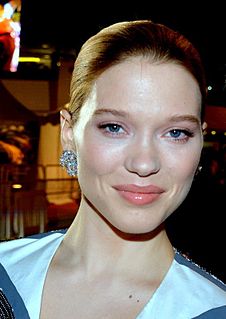A Quote by Hiro Murai
The way I look at stories is often from far outside, like a god's point of view, and also very, very subjective.
Related Quotes
The problem is one of opposition between subjective and objective points of view. There is a tendency to seek an objective account of everything before admitting its reality. But often what appears to a more subjective point of view cannot be accounted for in this way. So either the objective conception of the world is incomplete, or the subjective involves illusions that should be rejected.
I'm a strong believer in telling stories through a limited but very tight third person point of view. I have used other techniques during my career, like the first person or the omniscient view point, but I actually hate the omniscient viewpoint. None of us have an omniscient viewpoint; we are alone in the universe. We hear what we can hear... we are very limited. If a plane crashes behind you I would see it but you wouldn't. That's the way we perceive the world and I want to put my readers in the head of my characters.
Katie Grand often comes in from a very different angle than what I've been thinking about. And that really gives it that extra something, because designers can often get stuck in their own view of how the collection can look. I always love the way that she turns it into something else and I kind of let go at that point.



































